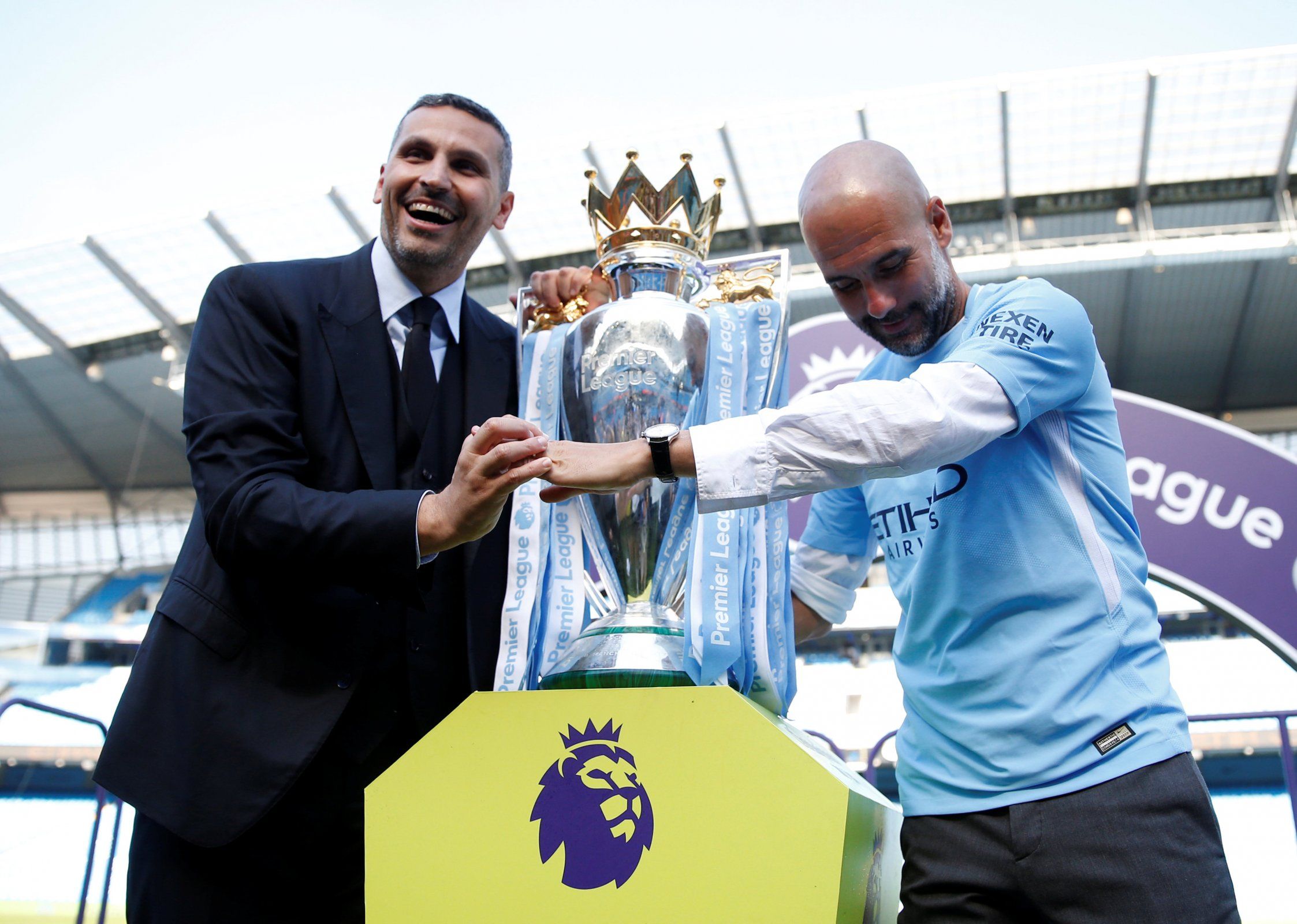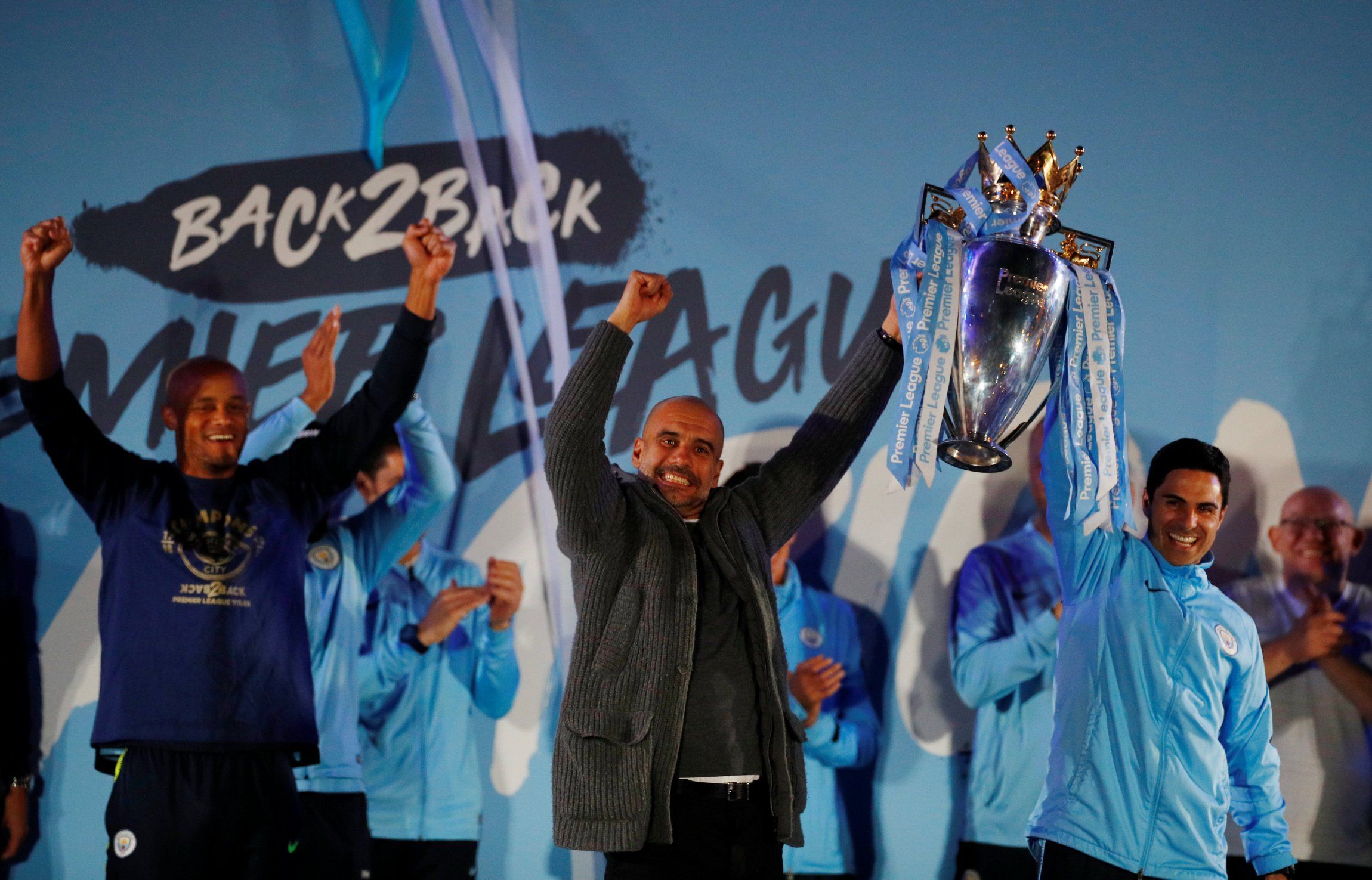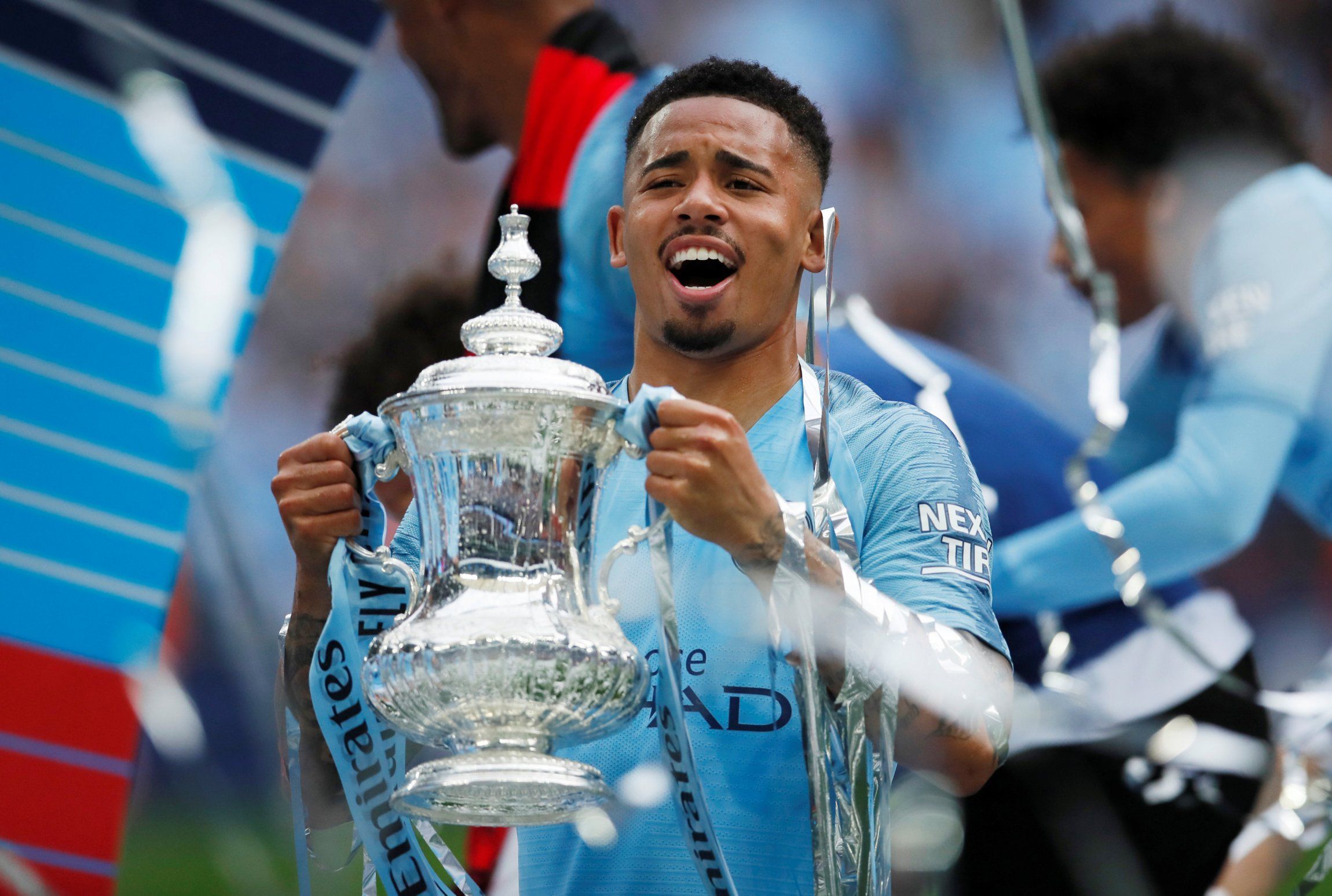[ad_pod ]
During the Avengers: Endgame conclusion, Thanos, the big bad in Marvel’s pop culture phenomenon, squares off with Robert Downey Jr’s brilliant scientist turned superhero Tony Stark, aka Iron Man. He tells him, with chaos all around him and having made half of the Earth's population disappear with a snap of his fingers, “I am inevitable”.
Avengers continues to be shown in cinemas, with billions around the world flocking to see the epic conclusion to an arc that has spanned more than 20 films. It is perhaps fitting, then, that it exists at the same time as this phenomenal Manchester City team, managed by a brilliant footballer turned genius manager Pep Guardiola.
City won the Premier League title this season by one point from a game Liverpool side who chased them all the way. They clocked up 98 points en route to them lifting the trophy; only one other team has ever accrued more across a 38-game season: City, last term. This triumph, then, was perhaps inevitable.
It is easy to fall into the trap of casting Liverpool as the heroes, here, as the Avengers battling to bring down the man who wants to snap half his competition away. But that would be to oversimplify it.
At the end of the day, City are and were inevitable both as victors of this Premier League season and as an entity. They are backed by a Gulf state and have all the money in the world; the ownership could, were it not for Financial Fair Play’s flimsy regulations, perhaps buy Kylian Mbappe, Neymar and Cristiano Ronaldo in one transfer window and have change to add another football club to their ever-expanding portfolio that currently includes teams in the USA (New York City), Australia (Melbourne City), Japan (Yokohama F.Marinos), Uruguay (Club Atletico Torque), Spain (Girona) and China (Sichuan Jiuniu). There is an idea that they could also expand into India.
This is no flash in the pan, and City are likely to continue winning, but, really, it is a compliment to the genuinely astonishing competitiveness that exists in English football.
Billionaires – and you do have to be a billionaire these days – flock to buy clubs in England because they want to achieve success and have their profiles raised because of it. It has been happening since the inception of the Premier League. A businessman named Jack Walker, who broke the British transfer record when he signed Chris Sutton for £5m in 1994, backed even plucky little Blackburn Rovers to the title.
The Glazers own Manchester United and have financed them handsomely, Roman Abramovich is in charge of Chelsea and made waves when he jostled his way to the front of the Premier League queue by appointing a brash Jose Mourinho and splashing the cash, and even Joe Lewis has financed Tottenham Hotspur’s glistening new stadium, which cost over £1bn to build. FSG at Liverpool bought the world’s most expensive defender in Virgil van Dijk just in a bid to compete with City.
It is just that the Blues have the endless reserves to sustain it. Sheikh Mansour bin Zayed Al Nahyan owns City and his family’s wealth is estimated to top £1trillion. Spending £100m on a footballer to Mansour is akin to the average Joe buying a pack of chewing gum, or, perhaps, a ticket to an Endgame screening.
Now, there are questions to be asked over the ownership, not to mention the fact that there is the very real threat of City being expelled from the Champions League over financial irregularity too.
But this article is to focus on the on-pitch stuff; and City have done plenty, winning a domestic treble and becoming perhaps the greatest Premier League team of all time in the process.
They will go again this summer, buying the best talent they can and paying handsomely to do so, and will likely get even better next season.
They have set the bar so high that it is unlikely that the majority of clubs will be able to compete; only Liverpool, Chelsea and United really have the finances to do so and the latter two have routinely shown that they cannot be trusted to buy success.
City can. And they have.
Their 6-0 FA Cup triumph over Watford that clinched the treble was the subject of a piece by the Independent’s Chief Football Writer, Miguel Delaney, who wrote: “The English game’s great showpiece became a great showcase for a huge problem in football, and not just in this country.”
He added: “We are just seeing in England a predictability that has become a massive problem in Germany, in Italy, in France and in Spain.
“City thereby aren’t alone in that, but they do stand alone in terms of the nature of their project, and how they could prospectively make this problem so much worse.”
It is not their fault, really. City never asked to be bought out in 2008 in one of the most astonishing deadline days football can remember; Sky Sports will continue to hope for a repeat but, I'm sorry to say, Jim, it’s almost beyond the realms of possibility.
It happened and we have to deal with it; we have to hope that the Premier League catches up.
Or maybe the bubble will burst and every team will be forced to start the season with exactly the same transfer budget, like some socialist Football Manager experiment.
But for now, we will continue to gawp on as City rack up title after title. They will probably do it again next season.
Or maybe the inevitability will cease and the top-flight’s own Avengers will step up and ensure that Pep doesn’t get his hands on English football’s Infinity Stones again.
But it feels too late; the snap has taken place and half the competition has dissipated. It was always going to happen. The Premier League was too unpredictable to stay that way forever. A duopoly or worse was forever lurking, it just took the right ownership of the right club to happen.
Next season, it’ll be another two or three-horse race and the rest will fight on, aware that they can’t even hope to be involved in the title picture in 2019-20 or, perhaps, ever again, at least until the latest billionaire rocks up looking to spend some of their cash in England.




